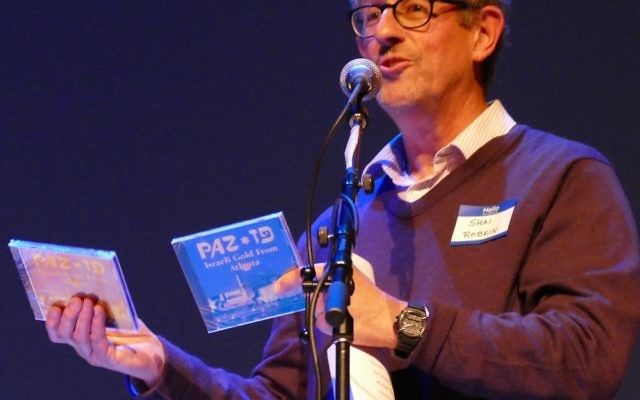Answer on Campus: Liberal Zionist Education
By Shai Robkin
In “Offense Not Defense” (Oct. 6), the Center for Israel Education’s Rich Walter thoughtfully explores the role of memory in Jewish tradition and challenges the way the community develops programs as aggressive and defensive forms of Israel advocacy are being created to oppose those who challenge Israel’s legitimacy, including many on the far left.
“For all the emphasis placed on memory, Jewish educational settings do little to ground our students in Jewish history,” Walter writes. “This is especially true in teaching about Zionism and Israel.”
This unfortunate truth is particularly painful for liberal Zionists who come from a long tradition of education — both formal and experiential — on the existential connection between Jews and Israel. From our youth movements, schools and years on kibbutzim or other dynamic parts of Israeli society, we build a base of knowledge and love for Israel that serves as a tremendous source of meaning for us and as a clear explanation of why we, as liberals, should defend the Jewish state.
When looking at campus organizing today, we share much of the dismay described by Walter. But we also know that this diagnosis can be addressed by rooting Israel and Zionist education on campus in the proven lessons of liberal Zionism and thus developing stronger and deeper Israel advocates for Israel’s next phase.
What, specifically, should be done to re-establish liberal Zionist education on campuses?
Promote campus education on Israel and liberalism, with a focus on programming by peer educators. Teach students about the many Zionist leaders who have been committed to progressive values, and demonstrate how engagement with Israel can be an expression of core social justice values.
The topics covered should include the Israeli Declaration of Independence, classic progressive Zionist writings, Jewish settlement in pre-state Israel, and examples of cooperative relations between Jews and Arabs.
Moreover, students should be taught to explore the competing narratives of Israelis and Palestinians in a respectful and empathetic fashion to create common ground for those who want to help both peoples.
Showcase Israeli and Palestinian activists seeking peace, justice and reconciliation. These “activists in residence” will teach students, through deep discussion of their activism, that there is an alternative to sustained conflict and hopelessness. At the same time, engagement with these activists will encourage progressive students to see Israelis as a source of inspiration and partners in a global movement for social justice.
Provide a variety of opportunities for students who want to add experiential learning on today’s Israel. Americans, Israelis and Palestinians should work together for peace, justice and reconciliation. Activities would include direct action, educational exchanges, advocacy, and volunteering for Israeli and Palestinian social justice organizations, as well as other intensive social justice volunteering and educational programs in Israel.
One excellent example is the Arava Institute for Environmental Studies (arava.org), which brings together Israeli Jews and Arabs, Palestinians, Jordanians, and others from around the world under the banner of “Nature Knows No Borders.”
Pro-Israel activism on campus succeeds only when it demonstrates that “progressive” and “pro-Israel” are not in conflict. This is the central vision of the educational programs developed by the Third Narrative (thirdnarrative.org): When it comes to this conflict, the truth resides in a gray area where advocates on either side typically don’t like to venture.
To help negate the perceived contradiction between concern for Israel and progressive identity, the Third Narrative offers safe spaces to engage on issues of Israel and her Palestinian neighbors from a nuanced, “warts and all” perspective.
Additionally, progressive education and engagement of Jewish and non-Jewish students help counteract the trend of growing hostility to Israel among millennials and activists in communities of color.
If we want to effectively confont the efforts of those who support boycott, divestment and sanctions and address the growing disinterest and antipathy toward Israel among young Jews, who will be making their marks on the world in the future one way or the other, we must speak in a language that speaks to them. Only the language of liberal Zionism can do that.





comments